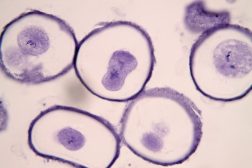Antivitamin
a substance that prevents a vitamin from exerting its typical biological effects. Most antivitamin’s have chemical structures similar to vitamins (e.g., pyridoxine and its antivitamin, deoxypyridoxine) and appear to function as competitive antagonists; some antivitamin’s produce effects, in addition, that are unrelated to vitamin antagonism.
Dictionary > Antivitamin
You will also like...

Population Regulation in an Ecosystem
With regard to the population size of a species and what factors may affect them, two factors have been defined. They ar..

Homeostasis of Organism Water Regulation
Osmoregulation is the regulation of water concentrations in the bloodstream, effectively controlling the amount of water..

Chemical Composition of the Body
The body is comprised of different elements with hydrogen, oxygen, carbon, and nitrogen as the major four. This tutorial..

Abiotic and Biotic Factors
This tutorial deals with the abiotic factors of the freshwater environment that determine what sort of life would be sui..

Meiosis – The Genetics of Reproduction
Meiosis is a form of cell division that creates gametes. It is comprised of two divisions that in the end, the resulting..

The Gene Pool and Population Genetics
According to Charles Darwin's theory of natural selection, preferable genes are favored by nature in the gene pool, and ..

